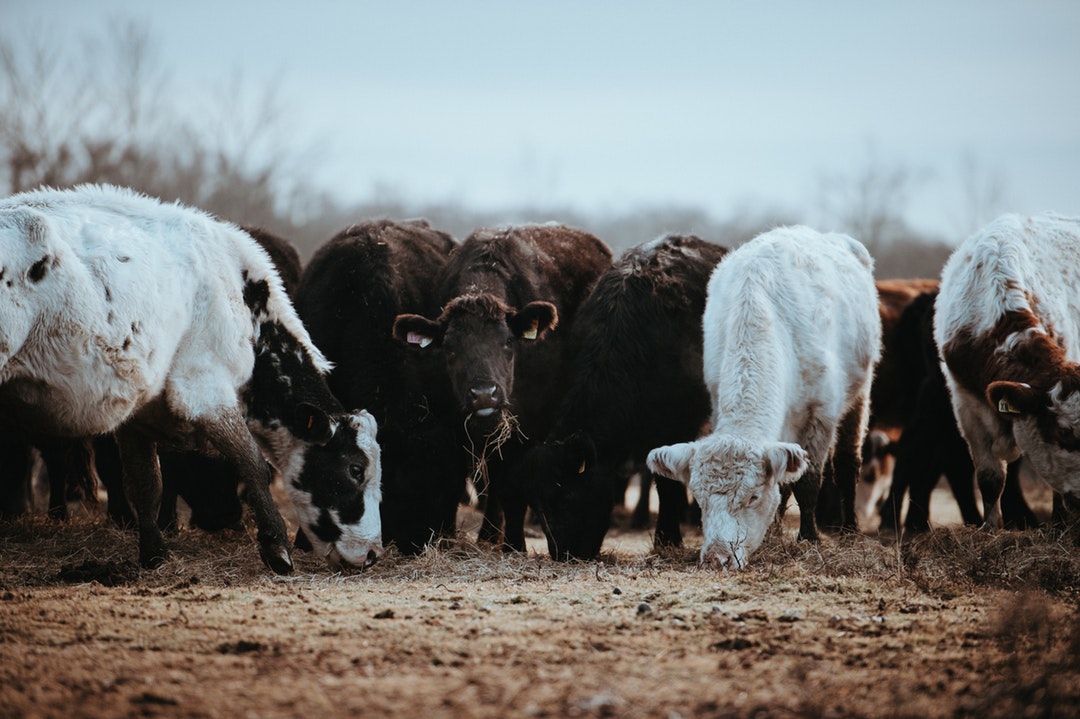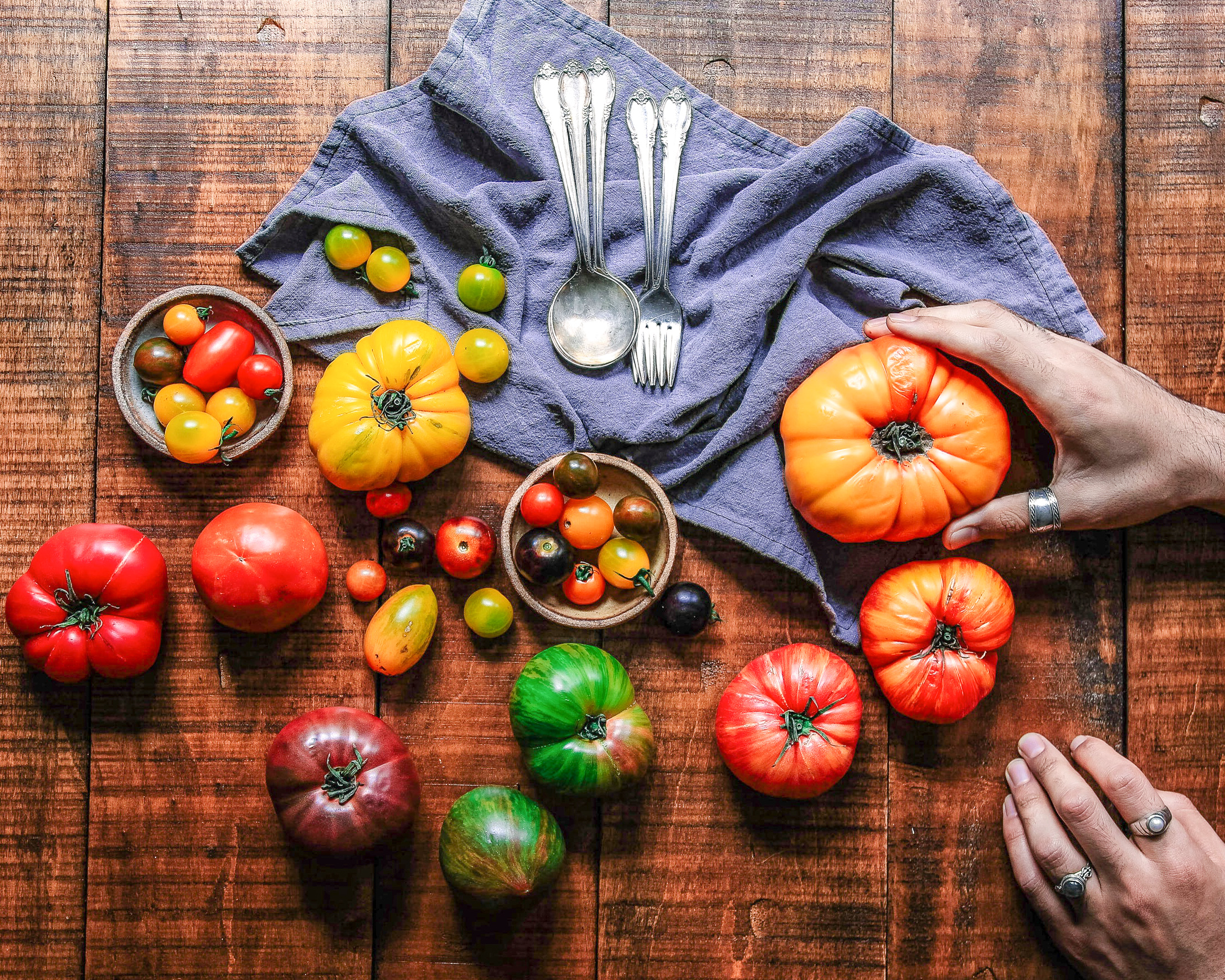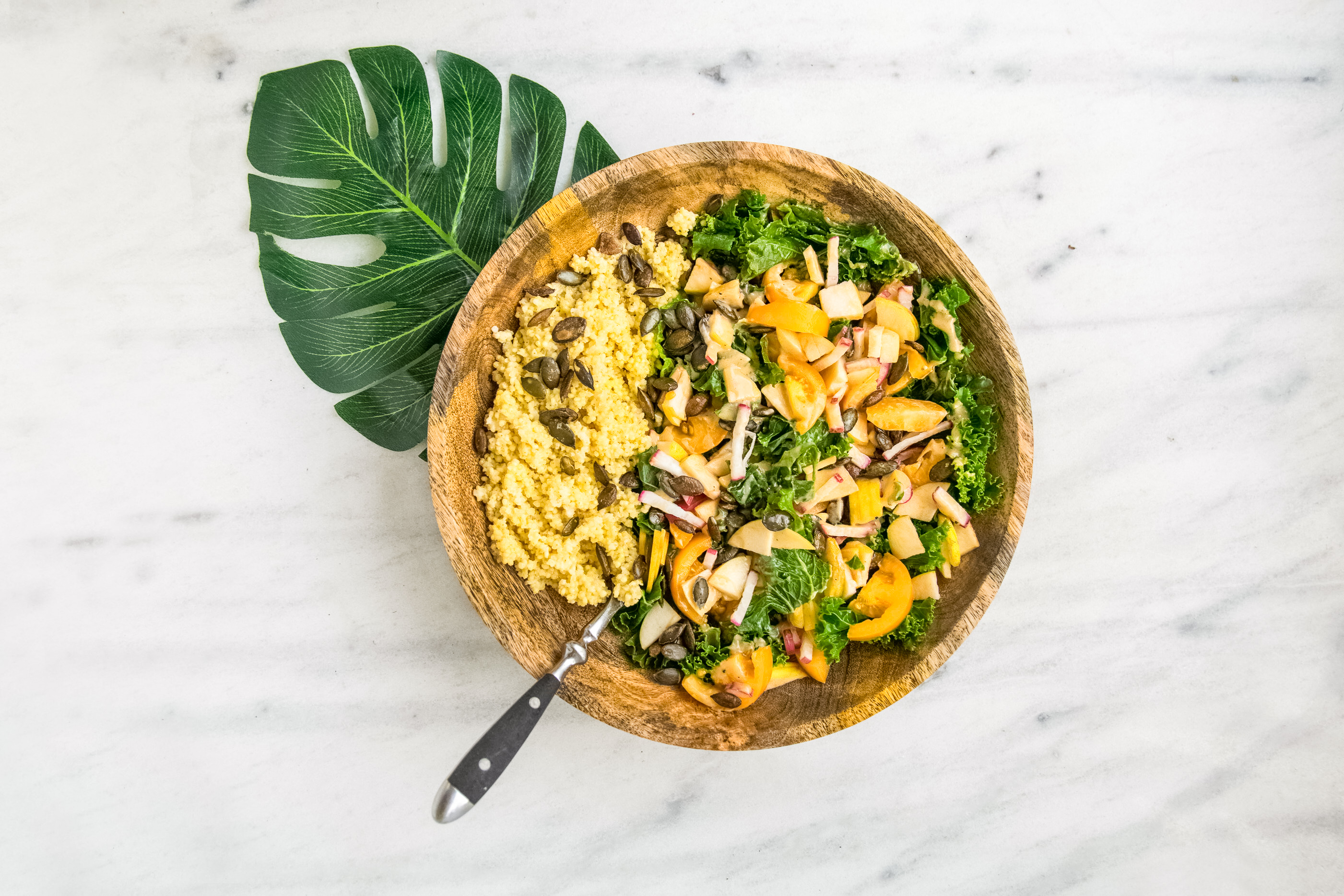

Veganism and the Environment
As the conversation about food is changing, the discussion is having an impact on the food industry. Veganism is a word thrown around quite a bit these days, while it has existed since the beginning of time, most people still don't know much about it. It seems that many people seem it as a food trend, and not as the environmentally saving lifestyle it could be.
Environmental Importance
We care about the environment. A lot. This is why Marlene Sandberg founded Naty; she wanted to find a solution regarding the high levels of waste that disposable diapers produce. She moved from diapers into feminine care once she saw the pollution coming from those products and did the same with the toiletries once learning of the environmental impact the nasty chemical had. The phrase "Save the Earth, it's the only one we've got" seems humorous in a sarcastic sense, but also a truth we have not yet realized.
The Bad News
Let's face it, the Earth is in a pretty bad shape. On August 1st of this year, the Global Footprint Network announced we've already consumed more resources than the Earth can regenerate in a year [1]. Sadly, this date keeps coming earlier each year. The cause is everything from overconsumption, to pollution, and carbon emissions. Not only do we tend to overconsume, but we also overproduce, which compounds the issue [8]. The goods that are overproduced, tend to not be recycled, donated, or reused, and end up in landfills, waterways, and forests.
Even worse we overproduce food [9] (while there are hungry people, but that is another discussion [11]) which accounts for 8% of all global greenhouse gas emissions according to the FAO, and livestock farming contributes 18% of all human produced greenhouse gas [10].

Livestock Farming contributes to 18% of greenhouse gases
The Good News
That was the bad news. The good news is that there are real actions we can take to reduce our impact on the environment. Reducing our plastic consumption is one thing [2]. Walking instead of taking your car or public transportation, and recycling help too. Another thing to consider is purchase less things.
And then, there is going vegan.
Evidently, avoiding meat and dairy is the 'single biggest way' to reduce our impact on Earth [3]. To be clear veganism, means consuming nothing from animals, whether that is meat, or dairy, they only eat what comes from the earth [6]. Those who consume no meat, but do eat dairy are vegetarians, and people who consume veggies, dairy, and fish are pescatarians. While the majority of people tend to be omnivores, eating meat, vegetables, dairy, and fish [6].
Veganism arguably goes beyond just a dietary habit, and into a full lifestyle. It considers the environmental impact food has on them and the earth. Several studies reveal that while livestock provides only 18% of calories, it takes up 83% of farmland and produces 60% of agriculture's greenhouse gases. Yes, vegetables and cereals also take space and pollute but "The scientists also found that even the very lowest impact meat and dairy products still cause much more environmental harm than the least sustainable vegetable and cereal growing." [4].

Fruits and veggies can provide a more environmentally friendly meal
Why going vegan is even more efficient than switching your car for an electric one?
Meat and dairy production produces greenhouse gases, and it pollutes land and water. This is due to the pesticides used to grow the crops to feed the animals. Also, the animals' waste is a huge source of pollution. Additionally, most animals raised for livestock are no longer grass, and being fed artificial pellets, which often contains harmful ingredients not good for them or anyone who consumes something from the animal [12]. Non-organically-grass fed animals are not healthy for anyone to consume, and then consider the fossil fuels created in the raising, slaughtering, and transportation of the animals [5].
While using an electric car is always a good idea, it focuses only on greenhouse gases, whereas changing your eating habits helps everything. If we reduced our global farmland use, the study says: "Not only would this result in a significant drop in greenhouse gas emissions, it would also free up wild land lost to agriculture, one of the primary causes for mass wildlife extinction." [5]. Simply by cutting your meat and dairy consumption, you tackle three issues at once! Of course, before switching to any diet, it's important to check with your doctor to see if it's a good fit for you.

Vegan dishes don't have to be boring!
How to reduce your meat and dairy consumption?
Start small and easy by planning a meat-and-dairy-free day once a week. Have fun trying new vegetarian or vegan recipes [7]. Try using meat and dairy substitutes, which are now easily found in organic shops. If you don't tell your family the dishes are meat and dairy free, they might not even realize it. Once you find recipes you love, don't hesitate to increase your meat-and-dairy-free day to twice a week or even more.
Go out and try new vegetarian or vegan restaurant, explore! You'll be surprised at how delicious food can taste and still be satisfying without meat or dairy.
Most importantly: have fun and be curious!
Last Updated: 2018.08.22
REFERENCES / READ MORE:
[1] Business insider, 2018. "earth overshoot day is august 1 2018" [Online] Available at: [LINK]
[2] Eco by Naty, 2018. "Why we should stop using oil based plastics" [Online] Available at: [LINK]
[3] Joesph Moore, "Reducing food's environmental impacts through producers and consumers." [Online] Available at: [LINK]
[4] The Guardian, 2018. "Avoiding meat and dairy is 'single biggest way' to reduce your impact on Earth" [Online] Available at: [LINK]
[5] Worldwatch.org. "Livestock and Climate Change". [Online] Available at: [LINK]
[6] Veganuary, "Eating animals is the largest contributing factor to species extinction" [Online] Available at: [LINK]
[7] Vegan Society, "How to go Vegan" [Online] Available at: [LINK]
[8] AP, Telegraph, 2012, "Over consumption is killing off the world's most precious wildlife, from tigers to tuna" [Online] Available at: [LINK]
[9] Rebecca Ratcliffe, The Guardian, 2018, "Food waste: alarming rise will see 66 tonnes thrown away every second" [Online] Available at: [LINK]
[10] FAO, 2006, "Livestock a major threat to environment" [Online] Available at: [LINK]
[11] World Hunger, 2018, "2018 WORLD HUNGER AND POVERTY FACTS AND STATISTICS" [Online] Available at: [LINK]
[12] Harriet Agerholm, 2017, "Meat eaters are destroying the planet, says report" [Online] Available at: [LINK]
[2] Eco by Naty, 2018. "Why we should stop using oil based plastics" [Online] Available at: [LINK]
[3] Joesph Moore, "Reducing food's environmental impacts through producers and consumers." [Online] Available at: [LINK]
[4] The Guardian, 2018. "Avoiding meat and dairy is 'single biggest way' to reduce your impact on Earth" [Online] Available at: [LINK]
[5] Worldwatch.org. "Livestock and Climate Change". [Online] Available at: [LINK]
[6] Veganuary, "Eating animals is the largest contributing factor to species extinction" [Online] Available at: [LINK]
[7] Vegan Society, "How to go Vegan" [Online] Available at: [LINK]
[8] AP, Telegraph, 2012, "Over consumption is killing off the world's most precious wildlife, from tigers to tuna" [Online] Available at: [LINK]
[9] Rebecca Ratcliffe, The Guardian, 2018, "Food waste: alarming rise will see 66 tonnes thrown away every second" [Online] Available at: [LINK]
[10] FAO, 2006, "Livestock a major threat to environment" [Online] Available at: [LINK]
[11] World Hunger, 2018, "2018 WORLD HUNGER AND POVERTY FACTS AND STATISTICS" [Online] Available at: [LINK]
[12] Harriet Agerholm, 2017, "Meat eaters are destroying the planet, says report" [Online] Available at: [LINK]

